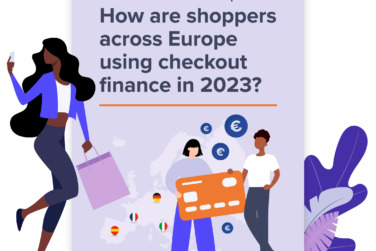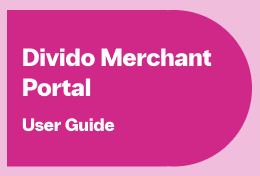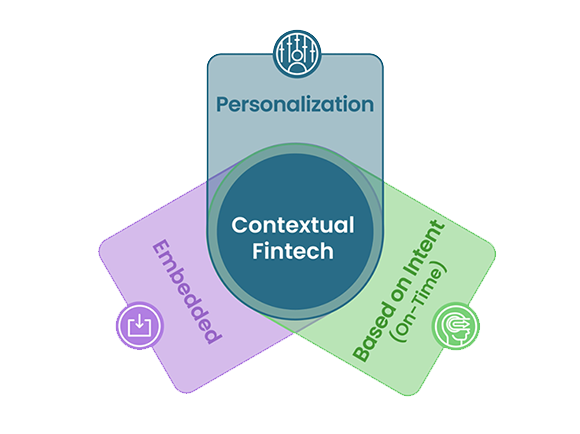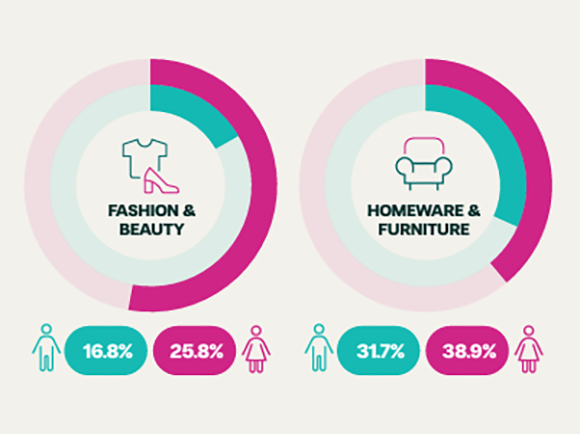
In a previous article, we looked at the challenges of forthcoming buy now pay later (BNPL) regulation based on Her Majesty’s Treasury (HMT) BNPL Consultation. We suggested that lenders and merchants be poised to take advantage of the changes. In this article, we review part two of HMT’s BNPL Consultation paper and look at six likely regulatory outcomes that will affect lenders and merchants.
BNPL: on the surface, everybody wins. Consumers get a seamless point of sale experience that helps them manage their finances for 0% interest. Meanwhile, merchants and lenders boost their revenues by offering previously underserved consumers this alternative, easy to use credit source.
Yet dig a little deeper (or listen to the news) and this may not be the case. The scale at which consumers are turning to BNPL – an as yet unregulated financial product – is alarming consumer groups.
Right now, there is insufficient data to tell whether buy now pay later products are as harmful as traditional means of financing, like credit cards. Industry will claim they’re not. Consumer groups claim they are. The irony, of course, is that there is insufficient data because the market is not yet required to provide it.
But that’s about to change. The 2021 Woolard Review identified the potential for consumer harm. Woolard recommended that the market must be regulated urgently to protect consumers. Following this, Her Majesty’s Treasury (HMT) released a consultation paper outlining its intentions for regulation. What will this mean for the sector?
1. No more jumping through loops
The Consumer Credit Act (CCA) of 1974 was implemented as a tool to protect the masses from potential financial harm. For four decades, the CCA has kept consumer financial products in check; payday loans, murky lending contracts, and unregulated financial products, to name a few.
The CCA ensures consumers are adequately protected. But there are certain instances where CCA rules do not apply – short-term interest free credit, for things like invoicing and gym memberships, are currently exempt from regulation.
Historically, short term interest free credit in its current guise of “BNPL” has not caught the attention of the Financial Conduct Authority (FCA) because there hasn’t been enough volume to cause concern to consumers. But as the years have passed and technology has been introduced to finance, a new style of credit has started to emerge. Dressed up like short-term interest free credit buy now pay later has, until recently, passed the FCA’s watch relatively unnoticed.
HMT’s BNPL Consultation made it clear that to protect consumers this loophole will need to be closed. It is of Divido’s opinion that this will mean a bespoke set of rules for the BNPL market.
2. Make the slick less slippery: pre contractual information
BNPL’s rise to stardom is in part down to the silky smooth shopping experience it offers. Its ease of use and dazzling colours contrasts the traditional steadfast financial institutions, with their formulaic contracts and underdeveloped user experience. Frictionless shopping is an exciting experience. But it turns out there is a pretty solid case for adding some bumps along the way.
A lot of BNPL marketing is incredibly slick. So slick, that there are fears lots of consumers are slipping into credit agreements, blissfully unaware. Mesmerised shoppers are transported to a world where the lifestyle they always wanted is only a click away.
Spreading oneself too thin can have dire consequences. Though hard credit checks have not been required by providers, missing payments can affect a consumer’s credit score. This is worrying, particularly for the younger, tech savvy consumer, who will use BNPL as their first interaction with credit. Consumers need to know what they are getting themselves into.
HMT’s BNPL Consultation has indicated that pre contractual information will be required. This needs to be proportionate. After all, these are small loans, not mortgages.
What this looks like is yet to be seen. Traditional banks and lenders are in a comfortable position as they are already regulated and so will already be offering BNPL products in-line with the existing CCA and FCA rules (and, where they aren’t, will be able to readily implement the new rules into their existing products). Merchants, now used to offering the likes of Klarna and its competitors, can expect increased friction at the checkout once the new rules are applied.
3. IDs, please: creditworthiness checks
Lots of BNPL providers do their own creditworthiness checks already, albeit for their internal affordability metrics. But these are typically soft credit checks. And the major credit bureaus have not been required to report on this data. Recently, Experian, TransUnion and Equifax announced their own form of reporting, but it will be a while before this data has an impact on the market.
HMT’s BNPL consultation made it clear that hard credit checks will be enforced to ensure credit is being provided to those who can afford to repay. Some companies have already started work in this area. Others have harsh payment terms and recovery policies ‘baked in’ to their business model.
Lenders should be ready to take advantage of those companies not prepared for these changes. Merchants should be sure they steer clear of any potential reputational damage by partnering with responsible BNPL providers.
4. All hail Section 75
You’ve bought a new smartphone – the latest release. One with a foldable touch screen. The smartphone arrives. You turn it on. But the screen isn’t working. That’s the one thing you bought it for. Why always you? You call the retailer to request a refund, but they’re not getting back to you.
Fortunately, you used a credit card to pay. Credit card payments are covered under Section 75 of the CCA which entitles consumers to refunds from lenders and credit card providers for goods that have failed or never arrived. It gives an added layer of protection for consumer purchases.
You call the credit card company and receive your refund. All hail Section 75.
HMT’s BNPL Consultation paper outlined its intentions to bring Section 75 to the BNPL market. The market agrees that this is a good thing. Besides, a number of BNPL providers are doing this already – it’s good customer service. There is potential for increased costs to lenders. But these will likely not make it to consumers.
5. Extra protection: introduction of a forbearance regime
One of the interesting things about the BNPL market is the lack of protection for consumers who fall behind or fail to make payments. In regulated lending, there are steps to take and rules to follow to recover payments from debtors. You can’t just send the bailiffs round; you must provide evidence to show that you have thought about the harm to the consumer.
But in an unregulated market, things are a little different. There are fewer rules to follow when calling in a loan, and therefore fewer mechanisms to protect consumers. HMT’s BNPL Consultation wants that to change. More protection for the consumer can only be a good thing for all involved.
6. Introduction of the Financial Ombudsman
Instigated when a complaint is made against a financial institution, consumers may use this independent arbitrator to assist with disputes relating to the way they have been treated by a lender.
While not formally a regulator, the Finance Ombudsman has influence over the market and can be an expensive hassle for lenders. Regulation plans to bring the BNPL market under its protection. Merchants will remain relatively unaffected.
What does this all mean?
Regulation is catching up to the BNPL market.
The CCA has spent a long time shielding consumers. But in the technologically enabled world of e-commerce, it is time for the old guard to stand down. A bespoke set of BNPL rules is the likely replacement. The next few months will be pivotal for the BNPL market. Lenders and merchants who hope to take advantage and stay clear of reputational damage should pay close attention to the developments.
Divido is the platform partner enabling lenders and merchants to launch their own-brand checkout finance, fast. Consumer journeys are seamless, and can be optimised to convert more customers at every point of sale, online and in-store.
You might also
be interested in
Keen to know more?








